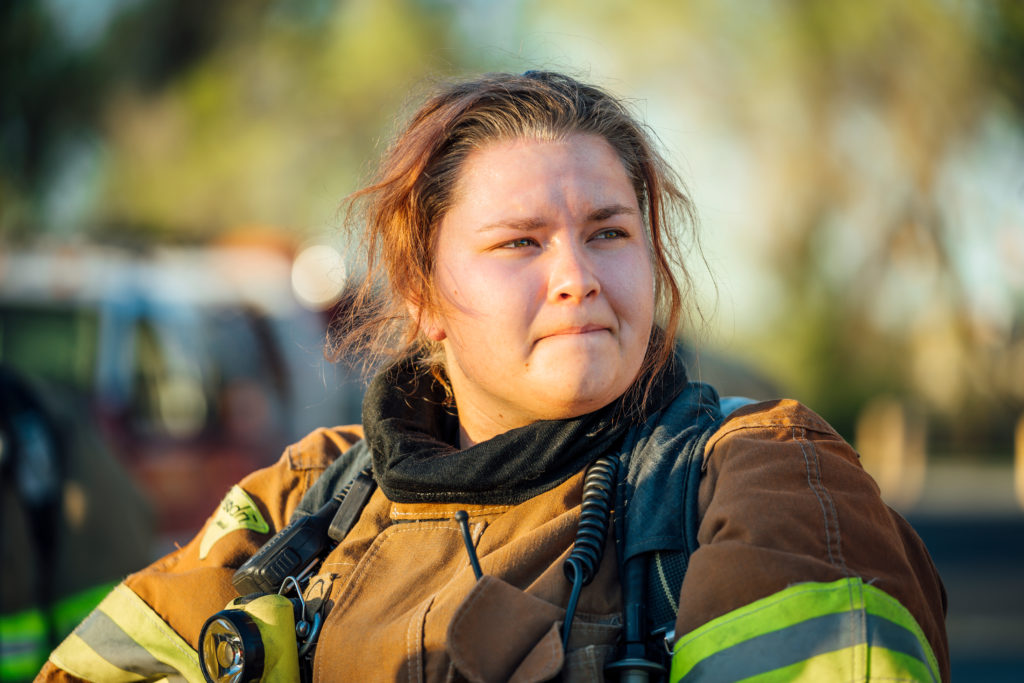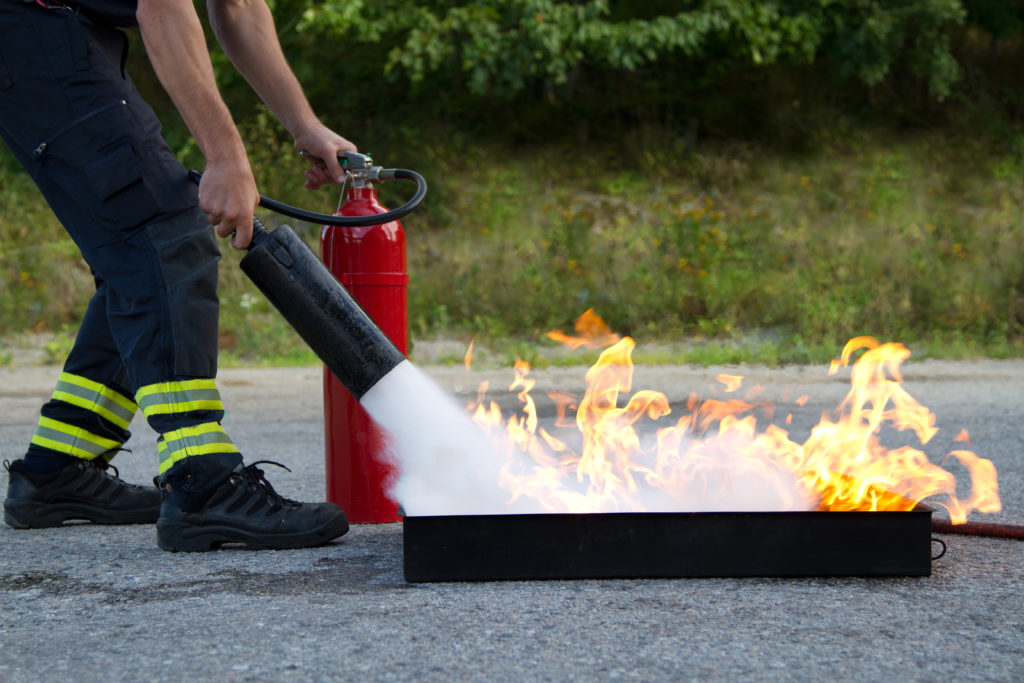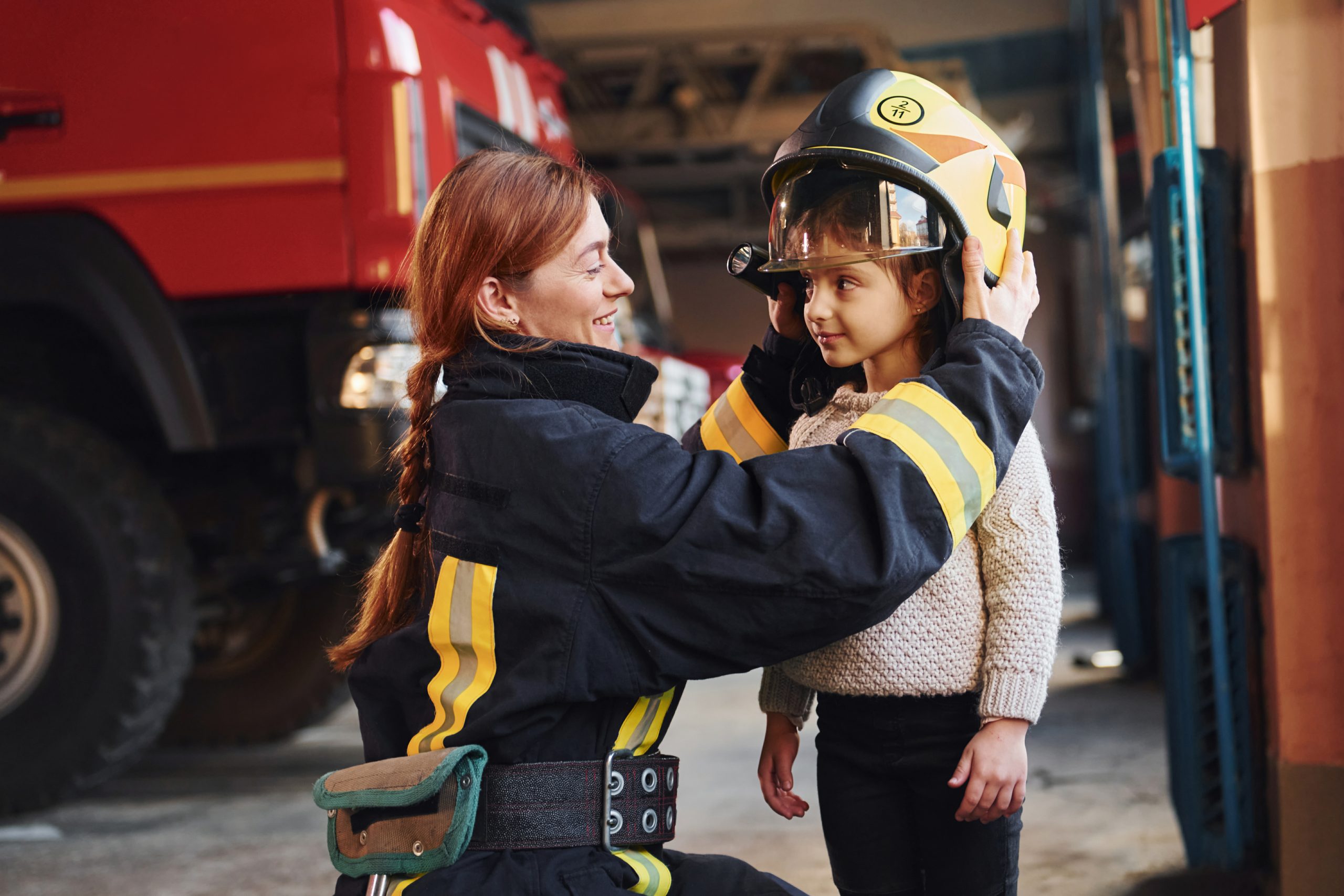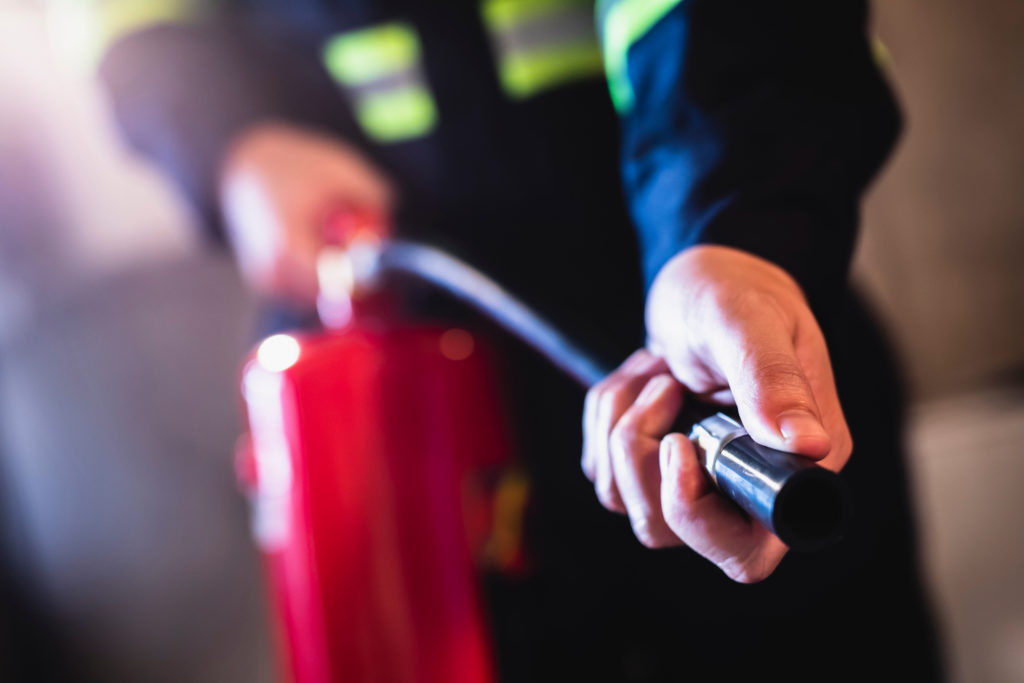A passion for helping others. The ability to confront emergencies head-on. The courage to run straight into a burning building. These are all qualities that could give you a rewarding career and help you become a firefighter.
But how do you get started in this industry? Do you need to go to college to be a firefighter? Do you need a degree to be a firefighter?
The answer: Prospective firefighters may not need a college degree for entry-level positions. But saving lives requires skill and training. So, you will need some level of postsecondary education above entry-level positions.
Training at a fire academy is another important part of preparation for firefighters. Also, a degree in fields like fire science or fire service can lead to career advancement. It may even lead to leadership positions like fire chief.
So, do firefighters have to go to college? Read on to find out.
Postsecondary Education for Firefighters
You do not need a college degree from community colleges or universities for your first, entry-level firefighting position, but you do need a high school diploma and fire service training. Many full-time firefighter jobs call for post-secondary certifications, which means you might need to attend college. For instance, many fire departments want firefighters trained as emergency medical technicians (EMTs). EMT certification training often includes:
- Assessing patients
- Checking vital signs
- Managing cardiac emergencies and trauma situations
- Respiratory management
- The use of basic medical equipment
EMT-basic training programs don’t award degrees. But the education they provide is crucial to success in emergency services, such as fire service. Many schools offer certificates, associate degree programs, and bachelor’s degree programs in:
- Firefighting
- Fire science
- Fire technology
These programs give you the knowledge necessary for emergency medical technician training. They also help you develop skills like leadership and fire prevention in fire services.
So, what degree do firefighters need? A bachelor’s degree in fire science or some related field can give you an edge over competition. High-level firefighting positions that need a minimum of an associate degree include:
- Assistant chief
- Chief
- Deputy chief
- Fire inspector
- Fire investigator
In fire science degree programs, students learn to use and maintain firefighting equipment. They learn tactics to prevent and control fires of many types. Students of fire science programs study:
- Combustible substances
- Fire codes
- Fire investigations
- Fire suppression (extinguishing fires)
- Proper handling of hazardous materials
- Rescue procedures
Along with classroom instruction, students will receive hands-on training in fire service. They may also have the chance to attend a clinical ride-along. This is why fire science is the best degree for firefighter aspirants.
Of note, there are financial aid options at some schools to help pay for your firefighter education and training.
Fire Academy and Training
When you get your first firefighting position, you’ll go to a fire academy. A fire department’s academy is either a state or local department-run school. Here, you will learn building codes, emergency medical procedures, and fire prevention strategies. You will also learn to operate equipment like:
- Axes
- Chain saws
- Fire extinguishers
- Hoses
- Ladders
You may spend a few months training at fire academies. But fire academy requirements vary. Some departments mandate apprenticeship programs. In these programs, new recruits work under experienced firefighters for four years.
After completing the fire academy training, firefighters must complete a probationary period. Wildland apprenticeship programs can last up to four years as well.
Firefighters must also earn EMT-Basic certification. This means you must pass a written exam and practical portions of a national written exam.
Also, not all academies have local or state sponsorships. The National Fire Academy, a federal sponsorship, sponsors some training sessions. Firefighters attending these specialized training sessions will learn:
- Anti-arson techniques
- Disaster and emergency preparedness
- How to handle hazardous materials
- Public fire safety

They take a written exam to test their knowledge. Firefighting is a rewarding job for those with the courage to do it. And the educational path is more than doable. To become a firefighter, a formal degree is not needed for any entry-level position. But postsecondary training is essential to teach you:
- How to prevent and control fires
- How to rescue injured victims
- How to use specialized equipment in fire service
Licenses, Registrations, and Certifications for Firefighters
Certification and licensure requirements for firefighters vary by state and locality. You should check with your state licensing agency or local fire department to learn more. But there are some credentials that all firefighters must have. This includes EMT certification or paramedic certifications.
The National Registry of Emergency Medical Technicians (NREMT) certifies EMTs. But this is only for paramedics and EMTs who passed required exams and programs. Some firefighters will need to do the same.
Also, since the firefighting profession requires operating emergency vehicles, you need commercial driver’s licensing (CDL). But again, it varies by state. You will need either a CDL or valid driver’s license with a professional firefighter endorsement.
Firefighters must maintain a valid driver’s license, credentials, and certifications. To do this, you must pursue continuing education.
Firefighters may need to enroll in training sessions in and out of the classroom. Often, training sessions are fire department run and sponsored at the local fire department level.
Career Advancement for Firefighters
Firefighters receive promotions to higher positions like:
- Battalion chief
- Captain
- Chief
- Deputy chief
- Lieutenant
To receive promotions past battalion chief, further education than a high school diploma is necessary. Some departments look for people with bachelor’s degrees to fill higher positions.
You can also become a fire inspector or investigator through work experience. Without a degree, experience is crucial. With enough experience, you could land a much higher role than you first had.
So, do you need a college degree to be a firefighter? Not for entry-level positions. But for higher positions, it may be necessary. Below is a list of the three best degrees for firefighters.
Emergency Management
Emergency management programs help you become a firefighter. They give you a strong education in disaster and homeland security. They prepare you for leadership positions that call for skills in:
- Communications
- Planning
- Problem-solving
- Quick decision-making
Many emergency management programs also offer concentrations in fire science or fire service. This way, you can curtail your education to your intended firefighting career.
Fire Administration or Science
The fire science major is the closest-related subject to the firefighting career. It will help you become a firefighter. It will also teach you to manage disasters and coordinate plans. You will also learn about the history and theory of fire prevention.
Common courses in fire science include:
- Arson fire investigation
- Fire dynamics
- Firefighting strategy
- Hazardous materials operator
Fire science is the perfect major for those interested in public safety. With this degree, you can become a fire chief or even design fire sprinklers. You can also work in a fire department. The possibilities are endless.
Public Administration
Public administration helps you become a firefighter. It gives students an understanding of social issues. You will learn to create policy and apply it to the real world. Topics of study can vary from public policy to business administration.
This major supports the firefighting career because of its focus on public safety. Also, its administrative component will ready you for a leadership position in a fire department.
Careers for public administration majors include:
- Fire engineer
- Fire marshal
- Wildland firefighter
Other Qualities Needed for Firefighters
You may still ask, do firefighters need a degree to work in a fire department? While a degree will increase job prospects, it’s not the only thing employers look for.
In fact, education and training aren’t the only qualities to have if you want to become a firefighter. You will need certain qualities and skills to achieve long-term success.
Firefighters should expect the job to be grueling. It can take a toll on your emotional well-being. Having the following qualities can help you withstand the hardships of the job.
Communication Skills
Communicating during times of disaster is an important skill for firefighters. Firefighters must give clear direction and explain dangerous conditions to emergency personnel. You need to stay cool under pressure and communicate with clarity.
Also, firefighters need to assure victims that the situation is under control. To do this, firefighters should convey confidence and leadership through speech.
Compassion and Empathy
As an emergency responder, firefighters offer emotional support during emergencies. It is important for them to have compassion and empathy. This will ensure emotional fulfillment for you and comfort for the people you help.
Making Decisions
Firefighters make quick decisions in response to difficult choices. Sometimes firefighters must act during life-or-death situations. Acute decision-making skills will get the job done well.
Speed is crucial in this field. With a raging fire, you do not have time to ponder. In other words, quick decision-making can save lives.
Mental Preparedness
Firefighters must work under pressure and handle stressful situations. They must enter burning buildings, treat medical emergencies, and face danger. Mental preparedness will help you face the challenges ahead.
Physical Stamina and Strength
Firefighters must carry heavy equipment and rescue victims. So physical fitness is critical for the job.
In fact, many fire departments require firefighters pass a physical exam. The most common exam is the Candidate Physical Ability Test (CPAT). During the entire exam, you wear a 50-pound self-contained breathing apparatus. The CPAT (physical ability test) consists of eight challenges:
- Ceiling pull and breach
- Equipment carry
- Forcible entry
- Hose drag
- Ladder raising and extension
- Rescue
- Search
- Stair climbing (with an extra 25-pound weight)
Firefighting is a demanding job. And physical fitness exams let fire departments know if you are strong enough to save lives.
Earnings Potential for Firefighters
Do firefighters go to college? Yes, they do if they want high-level positions. Do you have to go to college to be a firefighter? No, not for entry-level positions.
But do firefighters need a college degree? Again, no, but a degree will increase your potential earnings in this field, especially if you didn’t receive financial aid.
The Bureau of Labor Statistics reports the median annual wage for firefighters is $52,500. The lowest 10% of earners in this job make less than $26,940. The highest 10% earn more than $93,000 a year. Industry type impacts earning.
BLS reports there are three top-paying industries for firefighting. They are as follows.

State Government
State government reports a median annual wage of $56,340. It is the highest paying industry for firefighters. This number is higher than the median wage for firefighters regardless of industry. Also, this number excludes education and hospitals.
Federal Government
The second highest-paying industry for firefighting is federal government. But this excludes the postal service. In federal government, firefighters earn a median annual wage of $54,770. This number is higher than the median wage for all firefighter positions combined.
Local Government
Local government is the third highest-paying industry for firefighters. But this excludes education and hospitals. In local government, firefighters earn a median annual wage of $53,360. This industry also has a higher earnings potential than average.
Geographic Location
Earnings for firefighters can also vary by geographic location. According to the BLS, there are five top-paying states for firefighters. The highest-paying state is New Jersey, with a median annual wage of $86,880.
Other top-paying states if you want to become a firefighter include:
- California: $86,860
- Washington: $77,700
- New York: $77,380
- Hawaii: $68,590
These states offer a high earnings potential for firefighters. But the cost of living can offset your seen earnings. In areas like New York and New Jersey, cost of living is high. This can lessen the money you can keep, despite your higher earnings.
Along with top-paying states, some metropolitan areas pay high wages for firefighters. San Jose, Sunnyvale, and Santa Clara, California is the highest-paying metro area. Here, firefighters earn a mean annual wage of $125,680. Other top-paying metro areas to become a firefighter and work include:
- Hayward, Oakland, and San Francisco (California): $109,480
- Vallejo and Fairfield (California): $105,670
- Seattle, Tacoma, and Bellevue (Washington): $86,930
- Portland, Vancouver, and Hillsboro (Oregon): $83,060
But it is not only metro areas that pay well for this job. There are non-metro areas that pay above the average wage for firefighters as well. Top-paying non-metro areas include:
- Western Washington: $70,150
- Hawaii and Kauai: $67,010
- Central/East New York: $64,420
Job Outlook for Firefighters
The BLS says you should expect a favorable job outlook for firefighters through 2029. The Occupational Outlook Handbook projects a 6% employment growth over those eight years.
Anticipated growth for firefighting is faster than the average for all jobs. There will be about 24,200 job openings each year over the next decade. The growth comes from the need to replace workers who exit the labor force due to:
- Moving to a new occupation
- Retirement
- Transferring to a different location
Also, wildland firefighters will be in demand as environmental changes occur. Wildland firefighters combat active fires in the wilderness. They also reduce the impact of fires by managing the environment.
But there has been a decrease in residential and commercial fires. This is because building codes and materials continue to improve. But firefighters still need to respond to emergencies.
People with postsecondary education, training, and experience see the best opportunities. So, again, do you need college to be a firefighter? Or do you need a degree to be a firefighter? No, but it will open much higher positions and pay for you.
Since there are a limited number of job openings, you must stand out. The strongest applicants do this by showcasing their education and training. In other words, a degree can take you far in the firefighting industry.
Related:
- 30 Best Online Bachelor’s in Emergency Management Degrees
- 30 Best Online Bachelor’s in Fire and Emergency Services
- 30 Great Degree Programs for Working Adults
- What Is the Best Degree Path for Becoming an EMT?

